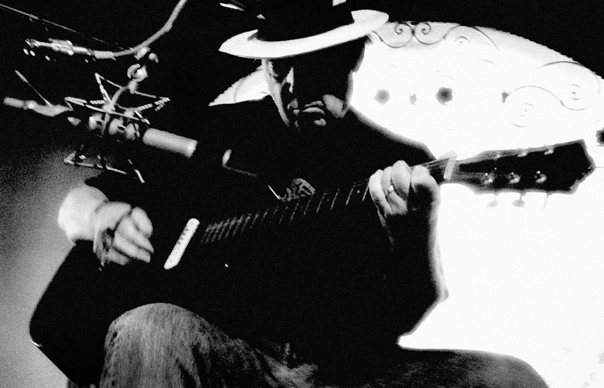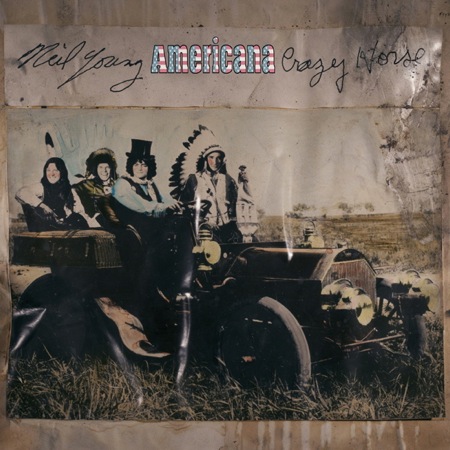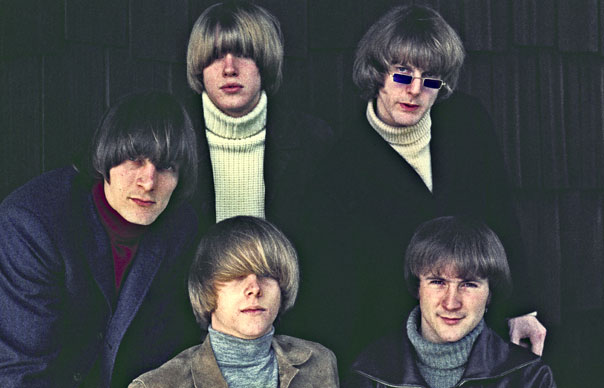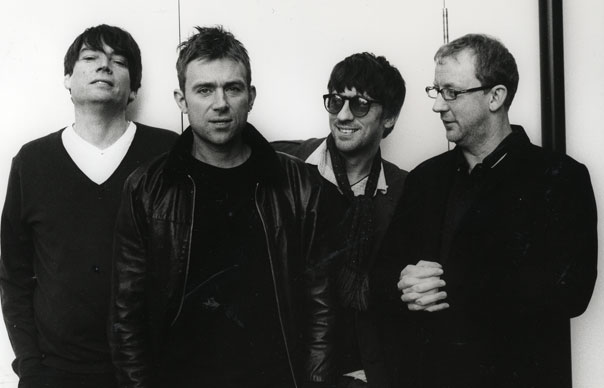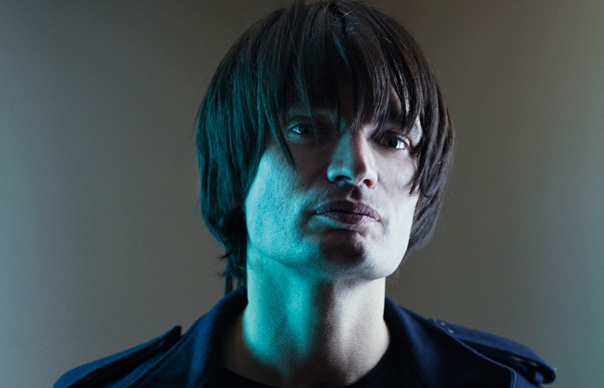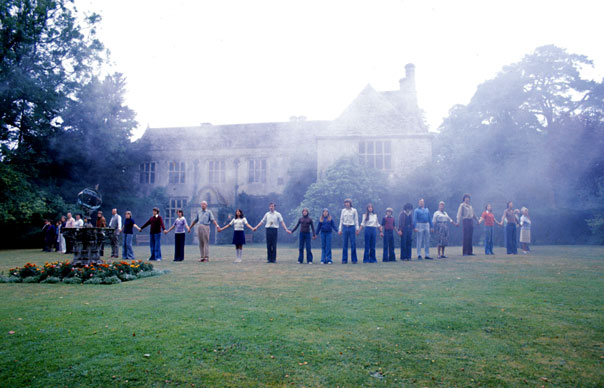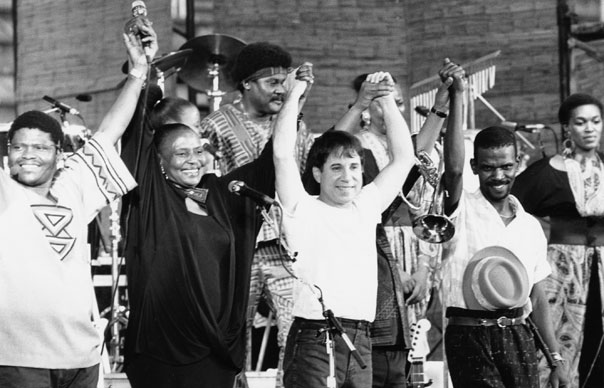Arctic Monkeys, Arcade Fire and The Clash are among the artists releasing new records as part of this year’s Record Store Day.
The event, which happens on April 21, will see over 300 artists offer up new vinyl releases, with new material, cover versions, rare tracks and studio outtakes all set to be released. To read the complete list of releases, scroll down to the bottom of the page.
Arctic Monkeys will release their new single ‘R U Mine?’ on special purple vinyl, with a brand new B-side ‘Electricity’ accompanying the release, while The Clash will release a newly digitally remastered version of ‘London Calling’ on vinyl.
Arcade Fire will put out remixes of their track ‘Sprawl II (Mountains Beyond Mountains)’, while Noel Gallagher will drop a new EP titled ‘Songs From The Great White North’ featuring four recent B-sides.
Laura Marling will release an exclusive double A-side with tracks ‘Flicker To Fail’ and ‘To Be A Woman’, with Miles Kane also unveiling his new four track EP, which features his new single ‘First Of My Kind’.
Bloc Party are also set to reissue debut single ‘She’s Hearing Voices’ as are the Sex Pistols, who will put out a new special edition single of ‘Anarchy In The UK’. The Vaccines will also release a split new 7” single with R.Stevie Moore.
As well as this, Two Door Cinema Club, Marilyn Manson, Bombay Bicycle Club, Garbage, Noah And The Whale, A$AP Rocky, Bat For Lashes, Belle & Sebastian, The Cure, Twin Atlantic and whole 200 others are set to put out new releases to mark the day.
Public Image Ltd officially kicked off the build-up to this year’s Record Store Day last night (March 19), playing a basement gig in London to mark the announcement of the special releases for this year’s event.
The full list of releases for Record Store Day 2012 are as follows:
2Many DJs – ‘As Heard On Radio Soulwax’
Abba – ‘Voulez-Vous’ (Extended Dance Remix)/’If It Wasn’t For The Night’
Admiral Fallow – ‘Boots Met My Face’
All The Young – ‘The Horizon’
Amanda Palmer – ‘Polly/Idioteque’
Andrew Bird – ‘The Crown Salesman/So Music Wine’
Animal Collective – ‘4 track E.P’
Arcade Fire – ‘Sprawl II Remix’
Arctic Monkeys – ‘R U Mine?’
ASAP Rocky – Exclusive Mixtape
Babe – ‘Terror Knights’
Battles – Remix 12″
BBC Radiophonic Workshop – ‘Dr Who Sound Effects’
BBC Radiophonic Workshop – ‘Out Of This World’
Beach House – ‘Lazuli’
Beth Jeans Houghton & The Hooves Of Destiny – ‘Atlas’
Bevis Frond – ‘Hard Meat At The Midnight Court’ (7″)
Billy Brag & Wilco – ‘Mermaid Avenue’
Bitchin’ – ‘Bajas Vibraquatic’
Bloc Party – ‘She’s Hearing Voices’
Blood For Blood – ‘Enemy’
Bo Ningen – ‘Live At St Leonards’
Bob Dylan –’ Can You Please Crawl Out Of Your Window’
Bob Marley – ‘Marley OST’
Botch – ‘An Anthology Of Dead Ends’
Brendan Benson – ‘What Kind Of World’
Bruce Springsteen – ‘Rocky Ground’/The Promise’ (Live)’
Bruno Mars – ‘The Grenade Sessions
Camille – ‘Mars Is No Fun’
Candy Flip – ‘Strawberry Fields Forever’/’Love Is Life’
Carolina Chocolate Drops/Run-DMC – ‘You Be Illin”
Carter – ‘Tutti Void’
Cedric Bixler Zavala & Christian Eric Beaulieu – ‘Anywhere’
Childish Gambino – ‘Heartbeat’
Chuck Persons – ‘A.D.D. Complete’
Chuck Prophet – ‘The Left Hand And The Right Hand’
Circle – ‘Manner’
Civil Wars – ‘Billie Jean/Sour Times’
Clutch – ‘Pigtown Blues’
Cold Specks – ‘Holland’
Common – ‘The Dreamer, The Believer’
Consort Audite Nova – ‘Plays Metronomy’
Crosses – ‘Option/Telepathy’
Cymbals – ‘Sideways, Sometimes’
Dale Earnheart Jr – ‘We Almost Lost Detroit’
Daniel Johnston – ‘Welcome To My World’
Daniel Land & The Modern Painters – ‘Eyes Wide Shut’
Danny Brown – ‘XXX’
David Bowie – ‘Starman’
Dead Boys – ‘Sonic Reducer’, ‘Hey Little Girl’, ‘Down In Flames’
Dead Fingers/Nik Freitas – ‘Dead Fingers’/’Nik Freitas’
Devo – ‘Live In Seattle 1981’
Disturbed – ‘The Collection’
Diva Dompe – ‘Cyborg Sweetie’
Django Django – ‘Storm’
Donald Fagen – ‘The Night Fly’
Dr John – ‘Locked Down’
Dry The River – ‘New Ceremony’
Duke Garwood & Wooden Wand – ‘Duke Wand’
Duke Spirit – ‘Live’
Elbow ‘McGreggor’
Electric Guest – ‘This Head I Hold’/’Jenny’
Emeli Sande – ‘Heaven’
Eric Bibb – ‘Deeper In The Well’
ESG/Las Kellies – ‘Erase You’
Fanfarlo – ‘Romms’
Faust – ‘Like A Stuntman’
Field Music – ‘Heart/Rent’
Fleetwood Mac – ‘Fleetwood Mac’
Footprintz – ‘Rush To The Capsule’
Foster The People – ‘Broken Jaw/Ruby’
Frank Turner – ‘I Still Believe’/’Somebody To Love’
Freakwater – ‘Feels Like the Third Time’
Futurebirds – ‘Seney-Stoval’
Gangrene – ‘The Alchemist + Oh N – Odditorium’
Gary Clark Jr Presents HWUL Cuts Vol. 1
Genesis – ‘Spot The Pigeon’
Geoff Barrow & Ben Salisbury – ‘Drokk – Music Inspired By Mega-City One’
Gilles Peterson – ‘Brazilica’
Go Kart Mozart – ‘New World In The Morning’
Gojira – ‘End Of Time’/’Bleeding’
Grateful Dead – ‘Dark Star – Olympia Theatre – Paris, France 5/4/72’
Gregory Porter – ‘1960 What?’
Grouplove – ‘Don’t Fly Too Close To The Sun’/’Tongue Tie’ remix
Guided By Voices – ‘Jon The Croc’
Hello Bear – ‘Fan Club EP’
Iggy Pop – ‘I’m Bored’/’African Man’
Inca Babies – ‘My Sick Suburb’
Inspiral Carpets – ‘You’re So Good For Me’
Jake Morley – ‘Ghostess EP’
James Brown – ‘Live At The Apollo’
Janis Joplin – ‘Selections from Pearl Sessions’
Jean Michel Jarre – ‘Concert In China’
John Cale – ‘Remixes’ 12″
John Martyn – ‘Transatlantic Sessions Recordings’
Johnny Flynn – ‘A Bag Of Hammers’
Jonathan Wilson – ‘Pity Trials And Tomorrow’s Child’
Karen Elson – ‘Milk & Honey’/’Winter Going’
Kasabian – ‘Video Games’/’Sweet Escape’
Kate Nash – ‘The Thin Kids Theme’
Keith Hudson – ‘Bloody Eyes EP’
Kimbra – ‘Settle Down’
Kreidler/Tarwater – ‘Team’/’Big Eden’/’Voyage To Arcturus Hush/Tanni’
Lanterns On The Lake – ‘Low Tide’
Laura Marling – ‘Flicker And Fail’/’To Be A Woman’
Lee Hazelwood – ‘The LHI Years: Singles, Nudes & Backsides’
Lee Scratch Perry – ‘Blackboard Jungle Dub’
Leonard Cohen – ‘Live in Frederiction EP’
Lianne Le Havas – ‘Lost & Found’
Lissie – ‘Covered Up With Flowers’
Loose Tapestries ‘Soundtrack to new Noel Fielding Show – music by Serge Pizzorno’
Louis And Bebe Barron – ‘Forbidden Planet – Original Soundtrack’
M Ward – ‘Primitive Girl’
Machinedrum – ‘Room(s)’
Madonna – ‘Immaculate Collection’
Marilyn Manson – ‘No Reflection’
Mastadon/Feist – ‘Black Tongue’
MC5/Afrika Bambaataa – ‘Kick Out The Jams’
Mclusky – ‘Mclusky Do Dallas’
Metallica ‘Beyond Magnetic’
Metronomy – ‘Black Eye Burnt Thumb’/’You Could Easily Have Me (Woodwind version)’
Mika Vainio – ‘Rasputin 3000’
Miike Snow – ‘Devils Work’
Miles Davis – ‘Forever Miles’
Miles Kane – ‘First Of My Kind’
Morrissey –’Suedehead’, ‘We’ll Let You Know (live)’, ‘Now My Heart Is Full’ (live)
Mory Kante – ‘La Guineenne’
My Brightest Diamond – ‘I Have Never Loved Someone’
Neon Indian – ‘Hex Girlfriend’ (Twin Shadow remix)
New Build – ‘Medication (Pill Shaped Package)’
Nlf3 – ‘Beast Me’
Nomads – ‘Miles Away’/’American Beat’
Nomads – ‘Solna’
Nurse With Wound/Graham Bowers – ‘Rupture’
Odd Future – ‘The Of Tape Vol. 2’
of Montreal/Deerhoof Split 7″
Orbital – ‘Wonky’
Oscar Cash – ‘Plays Metronomy’
Otis Reading/Aretha Franklin – ‘Respect’
Otis Shuggie – ‘Inspiration Information’
Patti Smith – ‘Hey Joe’, ‘Piss Factory’
Paul Thomas Saunders – ‘Descartes Highlands’
Pelican – ‘Australasia’
Pete Townsend – ‘The Quadrophenia Demos ‘
Peter Tosh – ‘Legalize It (Dub Club & Secret Circuit remixes)’
Preteen Zenith – ‘Preteen Zenith’
Producers – ‘Freeway’/’Garden Of Flowers’
Professor Green – ‘How Many Moons Remix’
Public Image Ltd – ‘One Drop’
Quantic & Alice Russell With T – ‘Look Around The Corner ‘
Ramones – ‘Blitzkrieg Bop’/’Havana Affair’ 7″
Red Horses Of The Snow – ‘The Bright New City’/’Bridges’
Refused – ‘The Shape Of Punk To Come’/’Songs To Fan The Flames Of Discontent’/’Rather Be Dead’/’The New Noise Theology’
Regina Spektor – ‘The Prayer Of Francois Villon’/’Old Jacket’
Richard Hell & The Voidiods – ‘Blank Generation’, ‘Liars Beware’, ‘Who Says’
Rizzle Kicks – ‘Stereo Typical’
Rockabye Baby! – ‘Rockabye Baby! Lullaby Renditions Of The Smiths’
Rory Gallagher – ‘Stompin’ Ground’
Rosie Thomas & Sufjan Stevens – ‘Hit & Run Vol’
Ryan Adams – ‘Heartbreak A Stranger’/’Black Sheets Of Rain’
Santigold – ‘Master Of My Make-Believe’
Sara Watkins/The Everly Brothers – ‘You’re The One I Love’
Scum/Big Deal – Split 7″ single
Sebastian – ‘The EP Collection’
Sex Pistols – ‘Anarchy In The UK’
She & Him – ‘Vol 1’
Social Distortion – ‘Hard Times & Nursery Rhymes’
Sonnymoon – ‘Wild Rumpus’
Squackett – ‘Chris Squire’/’Stev’
Straylight Run – ‘Straylight Run’
Switchfoot – ‘Remix EP’/Vice RE Verses’
T Rex – ‘Electric Warrior’
Taffy – ‘So Long’
Talibam! – ‘#No School’/’Step Into The Marna’
Tangerine Dream – ‘Electronic Meditation’/’Ultima Thule Part One/ Ultima Thule Part Two’
Tegan & Sara – ‘Get Along’
The Black Angels – ‘Watch Out Bo’y/’I’d Rather Be Lonely’
The Black Keys – ‘El Camino’
The Black Twig Pickers – ‘Yellow Cat b/w You’ll Never Miss Your Mama’
The Civil Wars – ‘Live At Amoeba’
The Clash – ‘London Calling’
The Cult – ‘Lucifer’/’For The Animals’
The Cure – ‘Three Imaginary Boys’, ‘Seventeen Seconds’, ‘Faith’, ‘Pornography’, ‘The Top’
The Czars – ‘Sorry I Made You Cry’
The Fall – ‘Night Of The Humerons’
The Flamin Groovies – ‘Shake Some Action, Teenage Confidential ‘
The Flaming Lips/Mastadon – ‘A Spoonful Weighs A Ton’
The Future Sound Of London – ‘Papua New Guinea’/’Murmurations’
The Heartbreaks – ‘Funtimes’
The Jezabels – ‘Rosebud’
The Kinks – ‘Arthur’, ‘Something Else’, ‘Face To Face’
The Megaphonic Thrift – ‘Moonstruck’
The Misfits – ‘Walk Amoung Us’
The Pains of Being Pure at Heart – ‘Belong (Remixes)’
The Pharcyde Bizarre Ride II – ‘The Pharcyde – The Singles Collection Music Box’
The Pop Group – ‘LP’
The Raveonettes – ‘Into The Night’
The Right Now – ‘He Used To Be’/’Good Man’
The Sound – ‘Jeopardy’
The Subways – ‘Kiss Kiss Bang Bang’
The Supremes – ‘Baby Love’
The Treatment – ‘Then And Again’
The Velvet Underground – ‘Sweet Jane’/’Rock & Roll’, ‘Loaded’
The Wedding Present – ‘4 Chansons EP’
The White Stripes – ‘Handsprings/Red Death At 6.14’
The Wombats – ‘The Wombats Proudly Present..’
To Kill A King – ‘Video Games’/’Bloody Shirt’
Tortoise – ‘Lonesome Sound’/’Mosquito’
Trentemoeller – ‘My Dreams’ (Gun Club Cover)
Ulrich Schnauss & Mark Peters/Pyrolator – ‘Balcony Sunset’/’Sonnenaufgang’
Variety Lights – ‘Silent Too Long’
Vivian Stanshall – ‘Men Opening Umbrellas Ahead’
Xiu Xiu/Dirty Beaches – ‘Always/Tu Ne Dis Rien’
Yma Sumac – ‘Mambo (And More)’
Zomby – ‘Where Were U In 92?’














